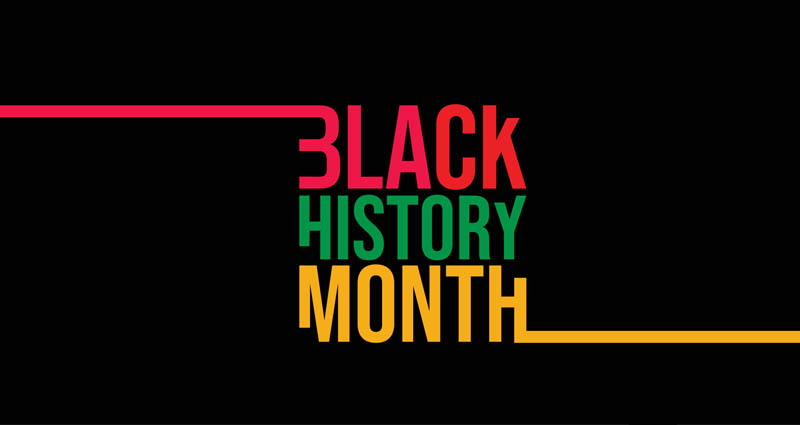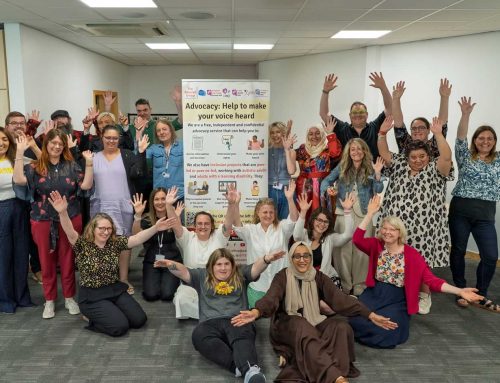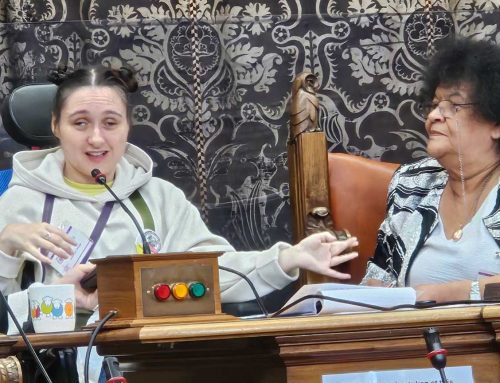To mark Black History Month 2023, we have a blog post about the difficulties that some black people face in accessing mental health support. Tajinder Lyal, Deputy Universal Advocacy Manager for our Independent Mental Health Advocacy (IMHA) service, talks about what she has seen in her many years as an advocate.
I would like to take this opportunity to share my experiences as an IMHA as we mark Black History Month.
Having spent 18 years of my working life as a hospital mental health advocate, I have had the opportunity to support clients detained under the Mental Health Act from varied backgrounds and communities.
I have especially witnessed the struggles of individuals from Black communities in accessing support in the mental health system.
Statistics show they are overrepresented in numbers compared to others, and often have difficulties in accessing the right support in time to avoid any further deterioration of their mental health. This may affect their presentation resulting in a hospital admission and being detained under the Mental Health Act.
Increased frustrations
Their struggles don’t stop there but continue in the mental health wards. IMHAs are often told by their clients that due to increased frustrations, due to them expressing their views and opinions firmly, it can result in them not being heard. They have often stated being victims of higher doses of medication, causing them to be constantly drowsy, as their presentation is labelled as aggressive.
Instead, this cry for help is mistaken as aggression and not being heard. Other factors may include not being made aware of their rights under the relevant detention of the Mental Health Act, and a lack of information regarding their options about medications, including how this may affect their physical health.
Due to the lack of information sharing, my clients have often felt they are not informed or involved in the decision making about their care and treatment. Lack of person-centred care results in unsuccessful discharges, resulting in yet another hospital admission.
Poor and negative experiences can result in a lack of trust in professionals within mental health services.
As I bring this blog post to a close, I will finish on a positive note by sharing a case study in our continuous battle in raising awareness, bringing about change to support this client group.
The advocate worked with Client X, who had a “severe learning disability”, who was detained under Section 2 of the Mental Health Act and later detained under Section 3.
The patient was kept on a general ward without access to fresh air and the outside due to concerns about violence and aggression. Nursing staff had little to do with the patient and cleaning staff refused to clean the patient’s area; the patient had always at least three “carers” with them. Client X had a communication passport that was not used by staff, so their voice was not heard during the process.
Client X had a parent and wider family, who were not included in meetings and conversations about the client. The wishes of the family were not considered, and they were told in passing, of plans for placements, which then changed. One suggestion was to move the client into an out-of-area care home.
The advocate had previously closed the referral on the instructions of the parent as they were advocating for their child. Later in the detention, when the family felt isolated and unsupported by professionals, the advocate was given an opportunity to meet the parent on the client’s ward. The advocate listened to the parent and explained their role.
Managers’ Hearing
The family had been informed of a Hospital Managers’ Hearing for the client, but they were not eligible for free legal representation as the client did not object to the Section 3. The reason for the Hearing was not made clear to Client X and their family.
The advocate demonstrated their commitment to work for and on behalf of Client X and their family by listening to and acknowledging their concerns and following their instructions, gradually developing a working relationship with the parent.
The family was supported by the advocate to have the Hearing cancelled and to apply for a Mental Health Tribunal. This meant the client was eligible for legal representation and the family felt this would enable them to challenge the hospital authorities about the client’s care and seek independent recommendations.
The family experienced this whole process as “systematic racism” and felt the client was seen as a “violent young Black person” and not as an individual to get to know. They were distrustful of the number of professionals involved in the case and the nameless hospital authorities, who appeared to be making decisions about Client X without consulting them or their family.
The family felt that the process was being done to them rather than having professionals working with them to find solutions.












